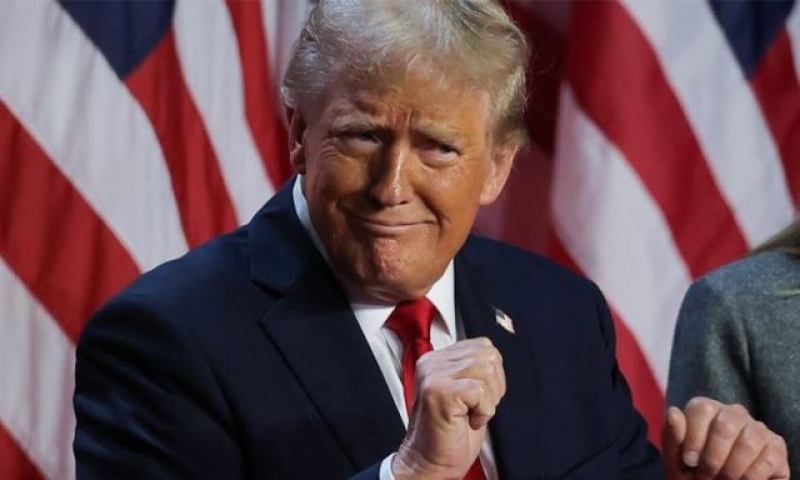- Puppet show enchants Children as Boi Mela comes alive on day 2 |
- DSCC Admin Salam’s drive to make South Dhaka a ‘clean city’ |
- 274 Taliban Dead, 55 Pakistan Troops Killed |
- Now 'open war' with Afghanistan after latest strikes |
- Dhaka's air quality fourth worst in world on Friday morning |
President Donald Trump's 37% tariff on Bangladeshi products

US President Donald Trump
President Donald Trump has announced tariffs on almost all imported goods from all over the world in the United States today, calling it America's 'Liberation Day'. Trump's tariff on Bangladeshi products is not 74%. It is half of that, 37%. Rather, Bangladesh collects 74% tariffs on US products.
In post-Hasina Bangladesh, the continuous propaganda by the Indian Ministry of External Affairs and the media about the rise of radicalism in northern part of the country and the latest report published about Bangladesh in 'The New York Times' on April 1, 2025 are said to have played a role in determining the US tariff rate. In fact, all these news, reports and propaganda about the rise of radicalism in Bangladesh do not seem to have played any role at all in determining the new tariffs by President Donald Trump.
If that were the case, then the tariffs on Pakistan, the playground of radicalism, would have been even higher. But where Pakistan imposes a 58% tariff on US products, the US tariff on Pakistani products is half that, 29%. On the other hand, the US has imposed 26% tariffs on India and 34% on China. The US tariff rate on imports of goods from a country is basically around half of the rate at which that country imposes tariffs on imports of goods from the US. However, it is not below 10%. Although it has been repeatedly hinted that massive tariffs will be imposed on goods imported into the US from Canada, the closest neighbor of the US, Canada has been exempted from imposing retaliatory tariffs.
However, the Trump administration has imposed a 25% tariff on automobiles imported from all countries of the world, including Canada. This US tariff on imported goods will put pressure on the production and export of goods in many countries of the world, including Bangladesh and Canada. Olu Sonola, head of US economic research at the world-renowned rating agency 'Fitch Ratings', said that this is a big change not only for the US economy, but also for the global economy.
Many countries may face a recession. However, I think that this US tariff rate on imported goods is not permanent. There may be a change or exemption in the tariff rate on imported goods in the US soon.
At a glance:
● A total of 100 countries will be covered by this new tariff, of which 60 countries will face high tariffs.
● The tariff has been set at 10% for the UK and 20% for the European Union (EU).
● The countries on which high tariffs have been imposed include China (34%), Vietnam (46%), Thailand (36%), Cambodia (49%) and Japan (24%).
● In addition, a 25% tariff has been imposed on all types of cars manufactured abroad, which will be effective from 12 midnight local time on Thursday.
● Trump's decision has increased the tariff on Bangladeshi products to 37 percent. So far, the country has had an average tariff of 15 percent on Bangladeshi products.
Shaikat Rushdee, Toronto April 2, 2025

